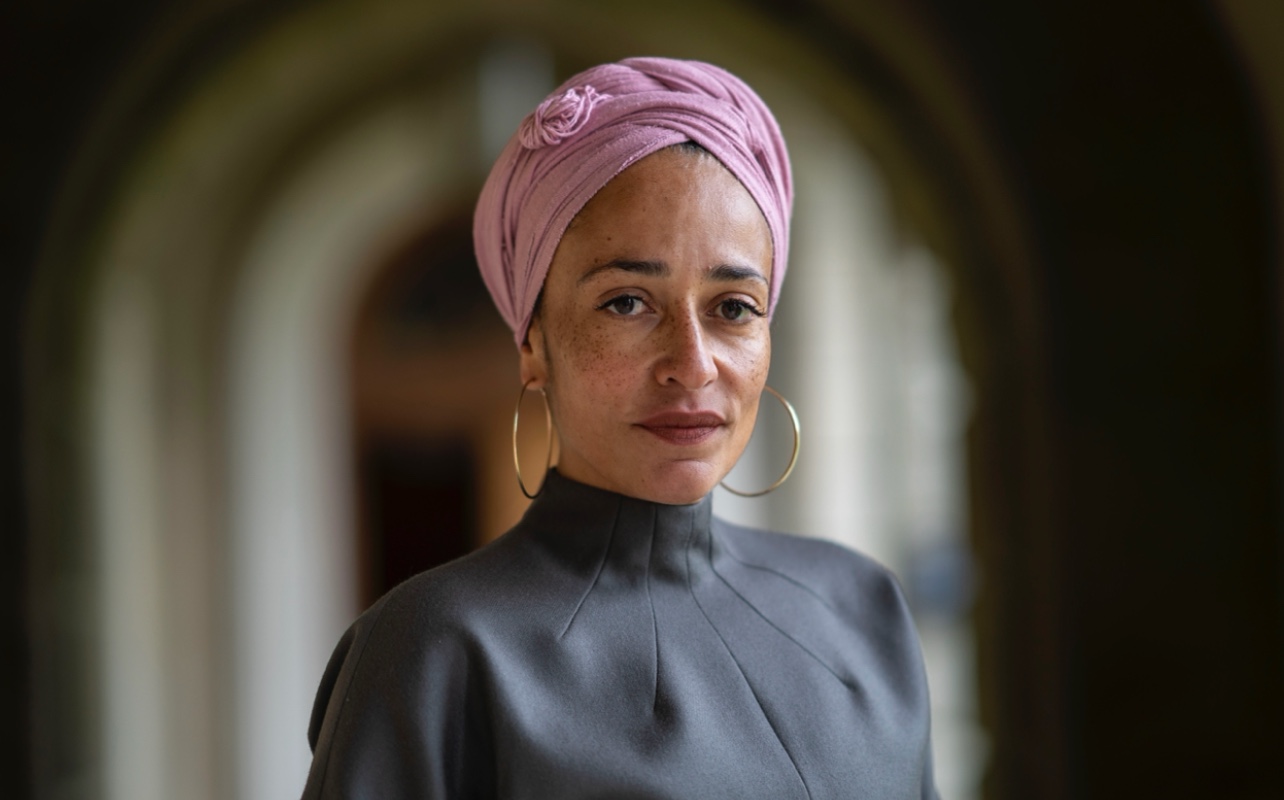May 7, 2024
In her criticism of Smith’s novel, Chu traces the writer’s practice of negative capability, or the practice of articulating the virtue of seeing something from both sides.
After British author Zadie Smith wrote a 3,000-word essay for The New Yorker, the backlash on social media was nearly immediate and thunderous. The essay, equal parts linguistic exercise and philosophy, attempted to argue that a central problem of the campus protests currently engulfing many institutions of higher education across the country boils down to an imprecise employment of language and rhetoric.
Not long after Smith’s piece was published, on X, formerly known as Twitter, Vulture reposted a 2023 review of Smith’s latest book by Andrea Long Chu, a Pulitzer Prize-winning critic. In that piece, Chu traces the writer’s practice of negative capability, or the practice of articulating the virtue of seeing something from both sides. Chu argued in her piece that Smith’s practice of publicly engaging in negative capability throughout her career as a public intellectual tends to land her in hot water, and the response from the wider literary and academic community to her essay titled “Shibboleth” is emblematic of this criticism.
If you want to know why Zadie Smith is two-siding a genocide after 8 months of indefensible bloodshed, Andrea Long Chu nailed it in How Zadie Smith Lost Her Teeth:https://t.co/WZN38tMmkA https://t.co/C52rFGrolA pic.twitter.com/zCBQ7QgZ71
Whole essay was like "WORDS MEAN THINGS!! or do they? Maybe not. Who can tell? What if words that mean things make people uncomfortable? Who is disempowered now? Words might mean things! Call me names if you must! A good day! You're welcome!" *Vanishes like Tuxedo Mask* https://t.co/HAkylF7h6S
Who among the students and faculty protesting and who among those with families being genocided invited Zadie Smith into the conversation. The young peoples language is far beyond this dislocated, moonwalking, looking from a real safe distance rhetoric.
Honestly it has become exhausting having to listen to liberal writers yap about “its complicated” and “both sides”. Just say that you are a coward and move on. https://t.co/O0sa9NkSKB
I’m just gonna put up the sign reminding everyone that ZS called her kids quadroons in an art review and AFAIK has never expressed regret about the choice to do sohttps://t.co/8ood5kJTg3 https://t.co/8ZfJ2DeqJx
Note Smith's accusations, unmoored from supporting evidence. When considering a literary approach, it's tempting to make excuses (and later, Smith addresses her status as a writer) but claims require facts. This is the irresponsible imprecision I'm referring to /2 pic.twitter.com/uwnvSIp6u6
In a 2017 piece for Longreads, writer Danielle Jackson carries the same criticism of Smith as Chu regarding Smith’s lack of engagement. In a piece for Harper‘s Bazaar, Smith argued that a letter calling for a white woman’s abstraction of Emmett Till lying in a casket to be removed was absurd, which Jackson found to be disappointing. Jackson writes, “I wished she had engaged this subject matter with her heart. I needed her to think of the logic of [Hannah] Black’s letter from a place of shared pain, shared experiences, and shared anger. I needed her to really listen to it before dismantling it.” Black’s letter, reprinted in its entirety by ARTNews, is primarily concerned with white artists mining Black pain in the name of art.
“Although [Dena] Schutz’s intention may be to present white shame, this shame is not correctly represented as a painting of a dead Black boy by a white artist — those non-Black artists who sincerely wish to highlight the shameful nature of white violence should first of all stop treating Black pain as raw material. The subject matter is not Schutz’s; white free speech and white creative freedom have been founded on the constraint of others and are not natural rights. The painting must go.”
Smith’s piece and the reactions to it underscore the responsibility of a nuanced discussion to have a point, especially when one side of the debate involves genocide or charges of genocide. The criticism that Smith’s use of language is an attempt to sanitize that genocide is a fair one, and it exemplifies Desmond Tutu’s often-quoted admonishment of neutrality during injustice is a correct analysis.
Despite the reactions from writers and academics, Smith’s place as a literary darling will likely be unaffected by this piece, as it was not affected by her hand wringing over Schultz’s Open Casket and connecting that to the perceived Blackness or lack thereof of her own children. Black writers and academics who are concerned about the plight of the oppressed will likely continue to doubt Smith’s ability to meet the moment, particularly where oppressed people are concerned, because, as The New Yorker piece makes clear, it is more important to her to seem to be an objective philosophical authority than it is to adequately react to objectionable things.
Enter your Email Address below to get our fun-filled Newsletter!
© 2024 Black Enterprise. All Rights Reserved.

